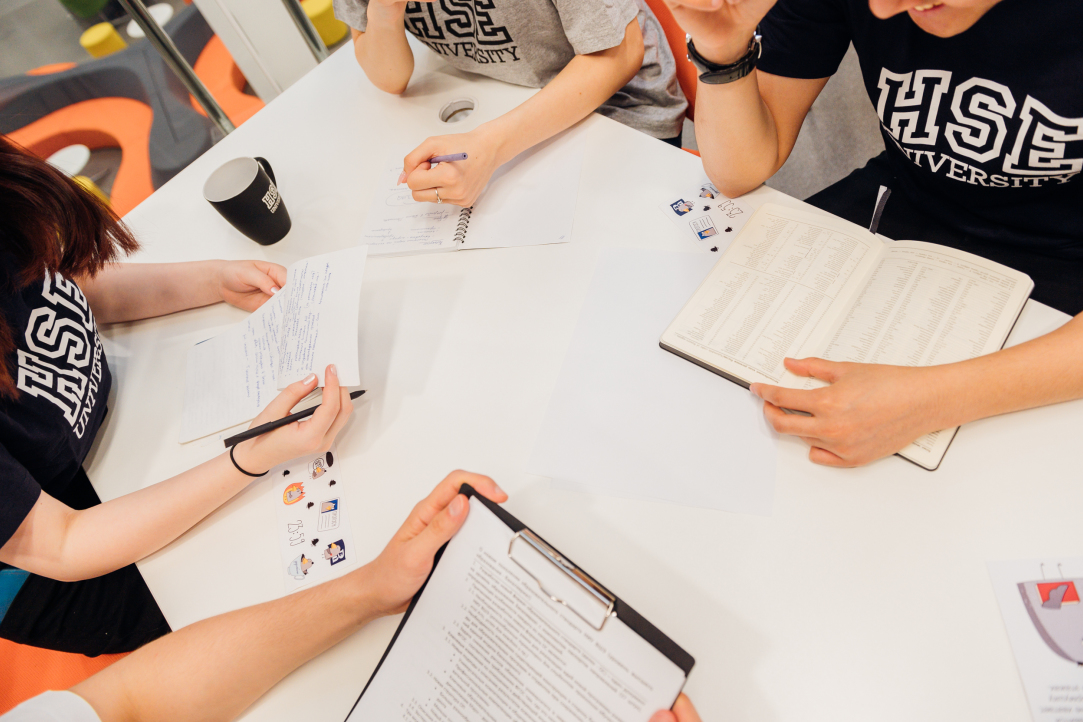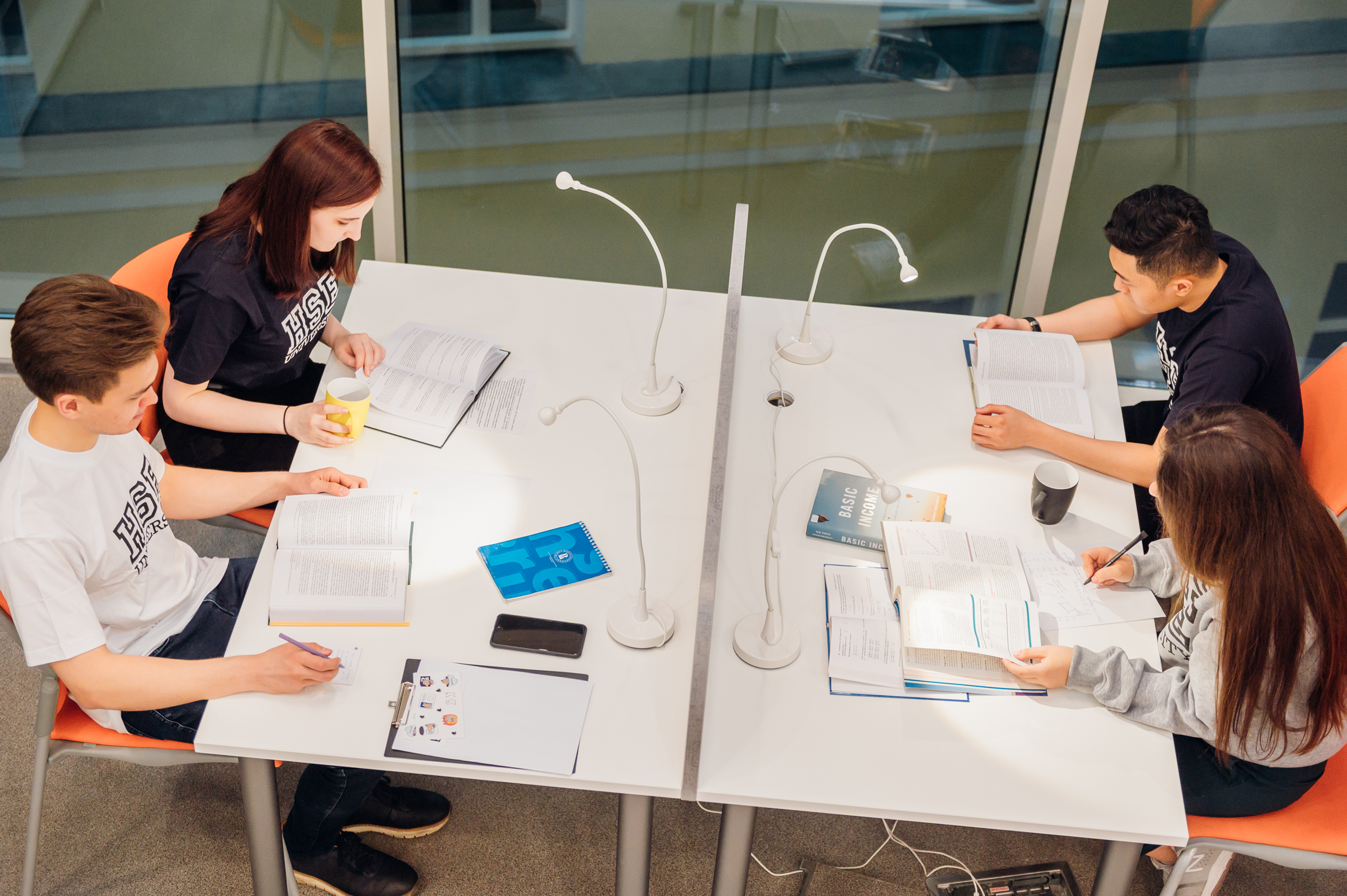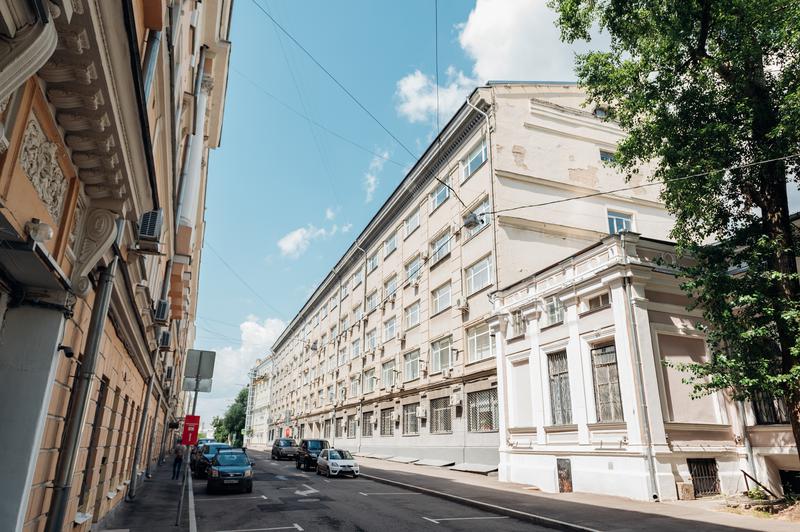‘A Good Teacher Is a Good Student.’ Cultivating Success Through Patience and Openness

Alaa N. Assaf is a doctoral student at HSE University’s Faculty of Law. In addition to doing research for his PhD thesis, he teaches undergraduates. Alaa has shared his thoughts on studying international law, life in Moscow, and what he misses about teaching in person.

Alaa N. Assaf
HSE University has a wide academic outreach. I came to know HSE through research papers done by some of its professors who happened to have the same academic interests as I do. One of them, Professor Vera Rusinova, became my PhD supervisor.
After reading my project she agreed to be my supervisor and following her preliminary approval I applied to the PhD programme through the Russian Government Scholarship scheme and got admitted to the HSE PhD school at the Faculty of Law. There was a portfolio competition and an interview with PhD school academic director, Professor Rodion Belkovich.
Furthermore, for any PhD student, the library is a fundamental asset for their research. HSE University has one of the best libraries in Russia with access to many up-to-date e-sources
I study primarily the question of territory in international law, hence my area of interest includes a variety of questions, such as the application of International Law in cyberspace and the theorization of State cyberterritory—issues related to the Arctic region and the problem of ice in a world that comprehends territory as a binary of land and water. Yet because of my background, I preferred to dedicate my PhD research to an issue that is more pressing to me, namely the role of territory in the operations of military intervention.

Teaching at HSE University
I’m teaching Public International Law, which is a very important course for any lawyer. Today’s world is identified as one with more interaction between nations than before. Borders are gradually starting to lose their significance. But with that comes a new range of legal issues that require proper structuring and analysis to fit within the paradigm of law. A modern lawyer should recognize the interconnection of the world today and carefully balance this with nations’ interests.
Teaching is tough, yet very rewarding. Education is like cultivating, it needs a lot of patience to reach a good fruitful ending when all students succeed. When I started teaching, I had one key skill that I use with my students— that a good teacher is also a good student, and my job is simply to provide my students with assurances that while learning is a painful process, yet it does not need to take a toll on their mental health.
I always try to make students feel that they have a class with one of their older peers who just happened to have more knowledge and experience, and who is open to all ideas
My aim is to make the classroom a safe space for the students to share their ideas on the topical issues of international law without fearing the consequences of being judged for their methodological erroneous opinions or even if a student was advocating an unpopular opinion.
This year I was teaching online due to the pandemic restrictions. While it is true that virtual learning helped institutions keep its education processes going despite a global pandemic, online teaching showed the importance of micro-interactions between teachers and students. Sitting in one room, face-to-face communication, living the atmosphere of students group in teamwork tasks—regrettably these interactions were mostly lost because of the online format.

Living in Moscow
Moscow is a vibrant city that does not sleep. It is already my third year in Moscow. I face no issues as a foreigner. Moscow is a very big city. Your concept of distances will change, and it might take you some time to do so.
Some foreigners complain about the bureaucracy they face, particularly with regard to the registration process, as most foreigners do not have this process back in their home countries. Yet, bureaucracy is also law and order. Regardless of this, my experience living in this city so far is very positive.
Alaa N. Assaf
Assistant, School of International Law
Rodion Belkovich
Associate Professor, School for Theory of Law and Cross-sectoral Legal Disciplines
Vera Rusinova
Professor, School of International Law
See also:
Doctoral Student Explores the Challenges Faced by International PhD Seekers During the Pandemic
In late June 2024, a pre-defence of Nurudeen Abdul-Rahaman’s dissertation took place at the HSE Institute of Education. Nurudeen Abdul-Rahaman, a doctoral student from Ghana, has presented his dissertation ‘Academic and Social Integration of Foreign Doctoral Students at Russian Universities during the Covid-19 Pandemic’ for the degree of Candidate of Sciences in Education (PhD).The HSE News Service spoke with Nurudeen as well as his academic supervisor, Evgeniy Terentev, Director of the Institute of Education, about their extensive research on international doctoral students in Russia and Nurudeen's contribution to this research.
‘We Cannot Understand the Modern Ideological Confrontation without the Accusations that Emerged during the Lausanne Process’
Rainer Matos Franco, from Mexico, defended his PhD thesis with honours at HSE University this June. In his dissertation, Rainer Matos Franco examines the history of anticommunism in Europe during the 1920s. The HSE News Service spoke with Rainer and his academic supervisor, Tatiana Borisova, about the significance of the Lausanne Process for the Cold War and contemporary history, the opportunities provided by HSE University for international PhD candidates, and the challenges of working with a vast database of historical sources.
‘I Am Able to Tell My Students Things That I Always Wanted to Tell People in Russia’
Ana Livia Araujo Esteves, from Sao Paulo, Brazil, is a journalist, a third-year doctoral student of International Relations, and visiting lecturer at the HSE School of International Regional Studies. In her interview for the HSE News Service, she speaks about her motivation to carry out research and teach students in Russia, shares some tips for people from Latin America living in Moscow, and talks about why a dog can be a reason to stay in Russia for just a bit longer.
Zaruhi Hakobyan Shortlisted for HSE Alumni Awards
Zaruhi Hakobyan, master’s graduate of the HSE University Faculty of Economic Sciences and research scientist at the University of Luxembourg, is involved not only in research but also in organising academic events for young scientists and students. As a foreign graduate of HSE University, Zaruhi was nominated for the HSE Alumni Awards ‘for her tireless enthusiasm in popularising economic science, teaching, and research at the international level’ and made the shortlist.
‘Studying at HSE Was a Chance for Me to Get to Know Some Supportive Seniors, Knowledgeable Professors, and Wonderful Friends’
On August 4, 2023, a pre-defence of the thesis on ‘Refugee-Host Community Conflict over Assimilation, Integration, and State Legitimacy: The Case of Rohingyas in Bangladesh’ by Md. Reza Habib will be held at HSE University. The preliminary defence will take place at a joint meeting of the HSE School of Sociology and the International Laboratory for Social Integration Research. Md. Reza Habib shared his experience of studying and preparing his PhD with the HSE News Service.
‘At HSE University, We Receive Substantial Support for Our Research’
Wenrui Zhang, from China, is a recent graduate of theMaster’s in Economics and Economic Policy at the HSE UniversityFaculty of Economic Sciences. Having successfully defended his master’s thesis on the impact of COVID-19 on the incomes of vulnerable groups, Wenrui has set his sights on publishing his research and enrolling in adoctoral programme at the university. The HSE News Service interviewed Wenrui about his achievements so far and his goals for the future, and also spoke to Prof.Elena Kotyrlo, his academic supervisor.
‘I Hope to Make Meaningful Contributions to the Academic Community’
Why do international students at HSE University decide to pursue a career in academia? What fields in economics are relevant to PhD students? Richard Asiamah from Ghana and Alesya Bukreeva from Uzbekistan are current master’s students at the Faculty of Economic Sciences, but have already received scholarships from the faculty to continue their studies as doctoral students at the university. Below, they share their experiences, while Denis Melnik, Academic Director of the Doctoral School of Economics, suggests some tips for the application process.
1,700 International Participants Named Winners of Open Doors International Olympiad
On March 16, the results of the Open Doors International Olympiad for master’s and doctoral applicants were announced. The competition is organised by the Association of Global Universities with the support of the Ministry of Education and Science of Russia and the Federal Agency for the Commonwealth of Independent States Affairs, Compatriots Living Abroad, and International Humanitarian Cooperation (Rossotrudnichestvo). HSE University is one of the Olympiad’s organisers and the site of its distributed project office.
‘My PhD Taught Me about Life, Professionalism, Research, and Controlling My Emotions’
Wai Yan Phyo Naing first came to HSE University from Myanmar to enrol in a master’s programme at the Faculty of World Economy and World Affairs in 2015. After graduation, he decided to pursue a PhD at the Doctoral School of International and Regional Studies. On February 16, 2023, he successfully defended his dissertation on ‘Evolution of Myanmar’s Policy Towards China (1988–2020)’.
‘Working in Academia Is My Lifelong Desire’
Majid Sohrabi is a 28 year-old student from Iran currently enrolled in a doctoral programme at the HSE University Faculty of Computer Science. Before starting his PhD, he graduated with honours from the university’s Master of Data Science programme. In addition to studying, he also works as an assistant at the School of Data Analysis and Artificial Intelligence and a research assistant at the Laboratory for Models and Methods of Computational Pragmatics.


